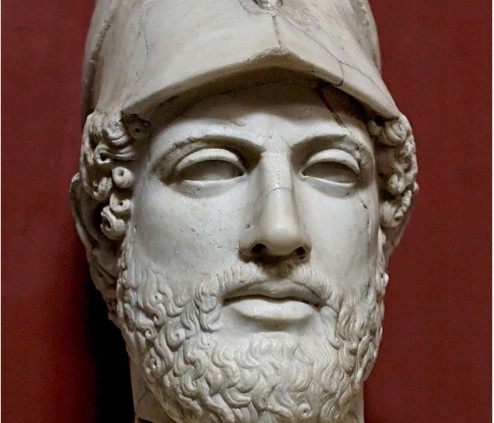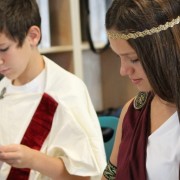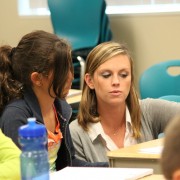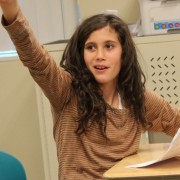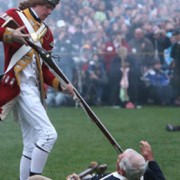Delighting in the Doing

Aileen, 5th grader at LePort
History class as dry recitals of names and dates for a test, and English class as pointless worksheets and writings to satisfy a teacher or parent. Sound familiar? Sad that this is the “history” and “English” so many of us adults remember, and so many of our children experience today.
At LePort, however, history is the exciting story of humanity’s monumental struggles and successes, and English is the impassioned communication of ideas worth knowing. The result of this educational approach is children who delight in the learning process and take pride in their creative product. For example, below is a speech written and later delivered by ten-year-old Aileen, who offers her audience (me and her fifth-grade peers) a memorable view of an ancient Athenian general speaking to his soldiers during a protracted war:

When education is done right — e.g., clearly presented content and thoughtfully motivated assignments — Aileen’s is the understanding and passionate achievement that is possible. And her success is not an anomaly.
Regularly at LePort, for instance, rather than teachers hearing unmotivated questions like, “How many paragraphs do we need for this assignment?” and “Will this be on the test?”, we instead (literally) hear sincere questions like: “Can I do the paper from the perspective of a *Spartan* general?” “How many soldiers had died at this point, Mr. McCarthy? I want to address the exact number!” “While I give my speech in class, can I play sad music in the background? It seems only fitting.”
In life, we write to communicate, not to get good grades. Thus in class, we present students with effective tools so they can write clearly and exciting content so they have something to write about. In brief, we offer children that which they (and adults) deserve: the opportunity to delight in the doing.

